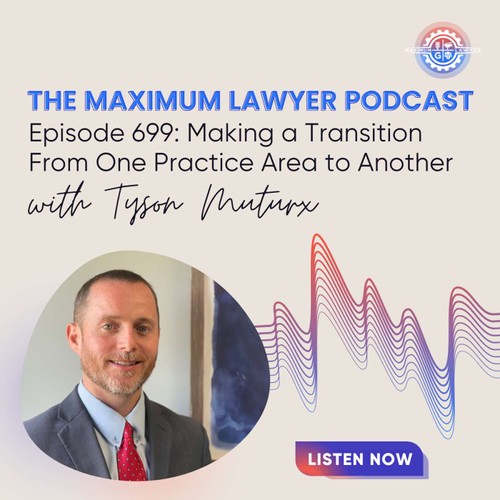
 Maximum Lawyer
Maximum Lawyer Making a Transition From One Practice Area to Another with Tyson and Tanner
Oct 19, 2024
Exploring a major career shift, a criminal defense attorney shares insights on moving to personal injury law. They discuss the financial motivations behind the change and the quest for a better work-life balance. The conversation covers practical strategies for building a new practice while juggling existing cases. Networking with larger firms and mastering client relationships are emphasized as key competitive advantages. Empathy's role in the transition is highlighted, emphasizing the importance of compassionate client interactions.
Chapters
Transcript
Episode notes
1 2 3 4 5 6 7 8
Intro
00:00 • 6min
Navigating Career Transitions in Law
05:37 • 12min
Strategic Transition to Personal Injury Practice
17:36 • 3min
Transitioning Legal Practices: Strategies and Challenges
20:25 • 18min
Competing with Large Personal Injury Firms Through Networking
38:06 • 3min
Essential Resources for Transitioning Legal Practices
41:18 • 3min
Empathy in Legal Practice
44:21 • 15min
Navigating Legal Transitions
58:56 • 4min
